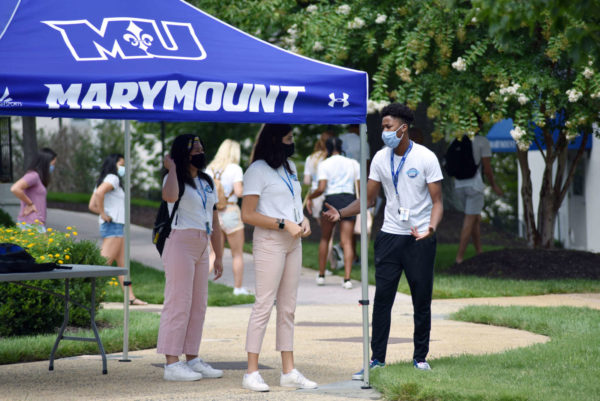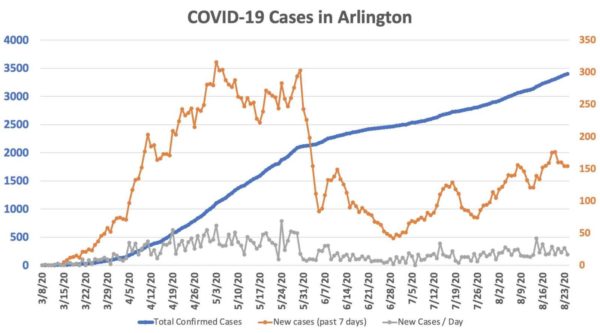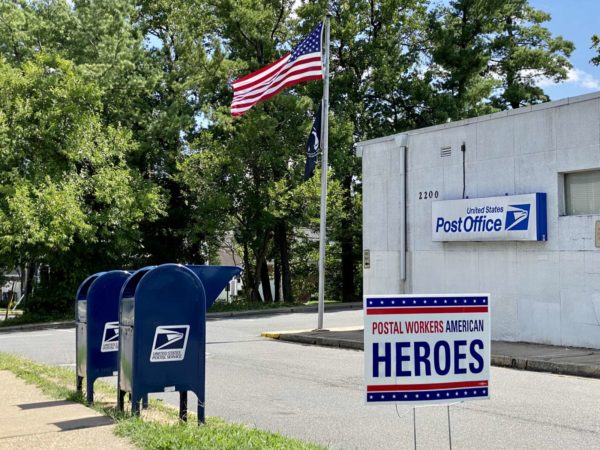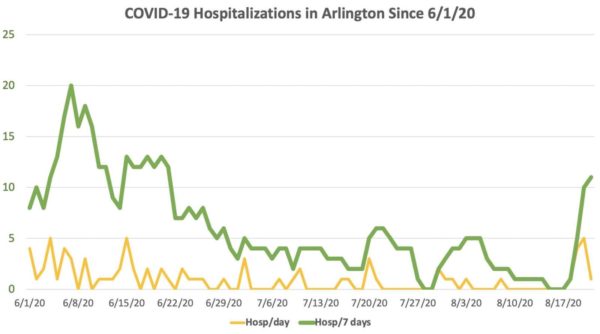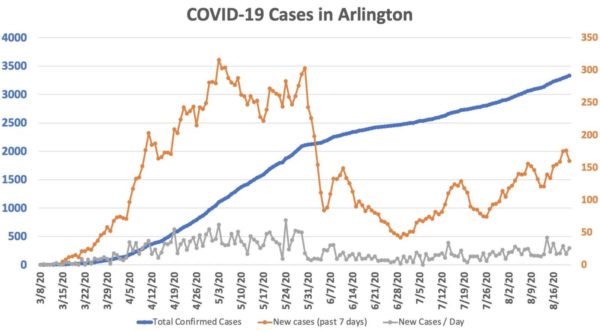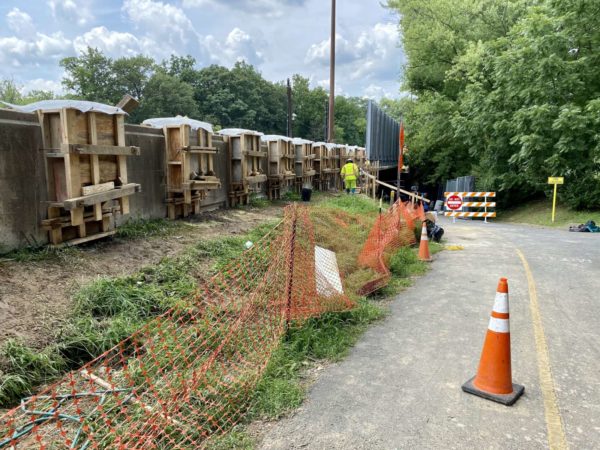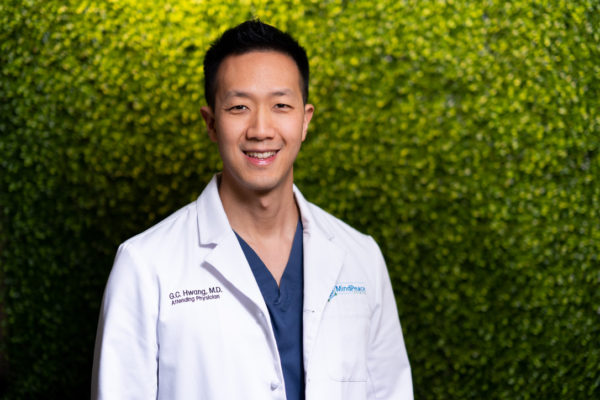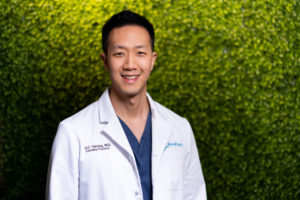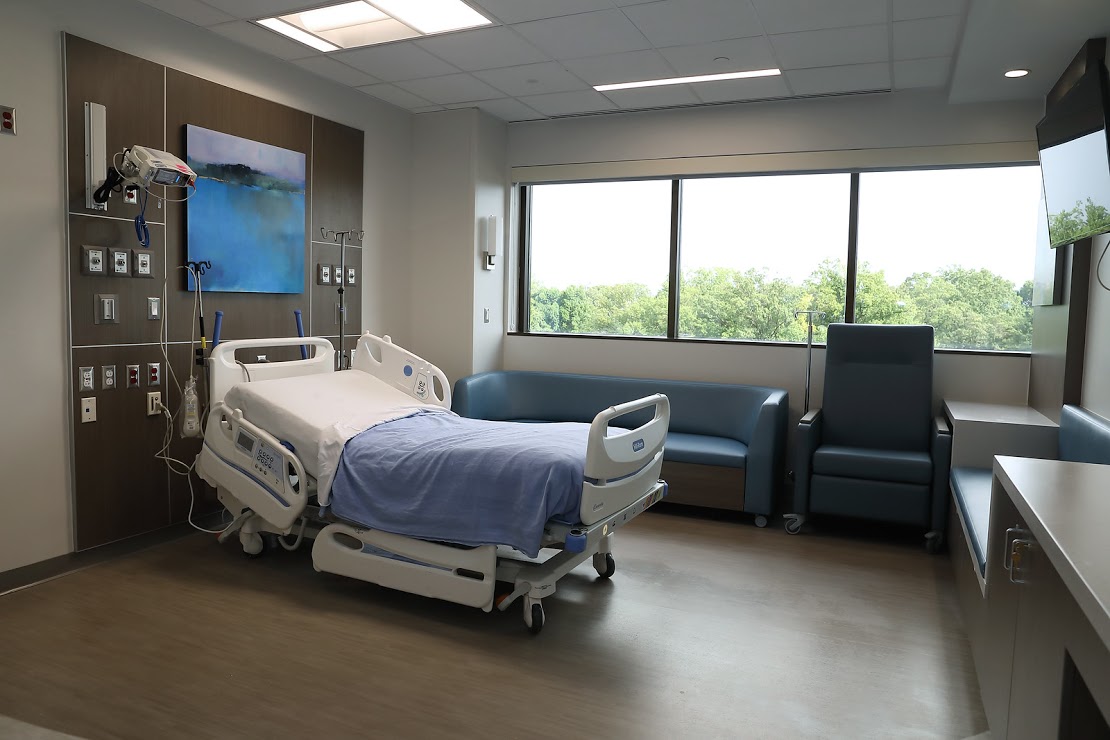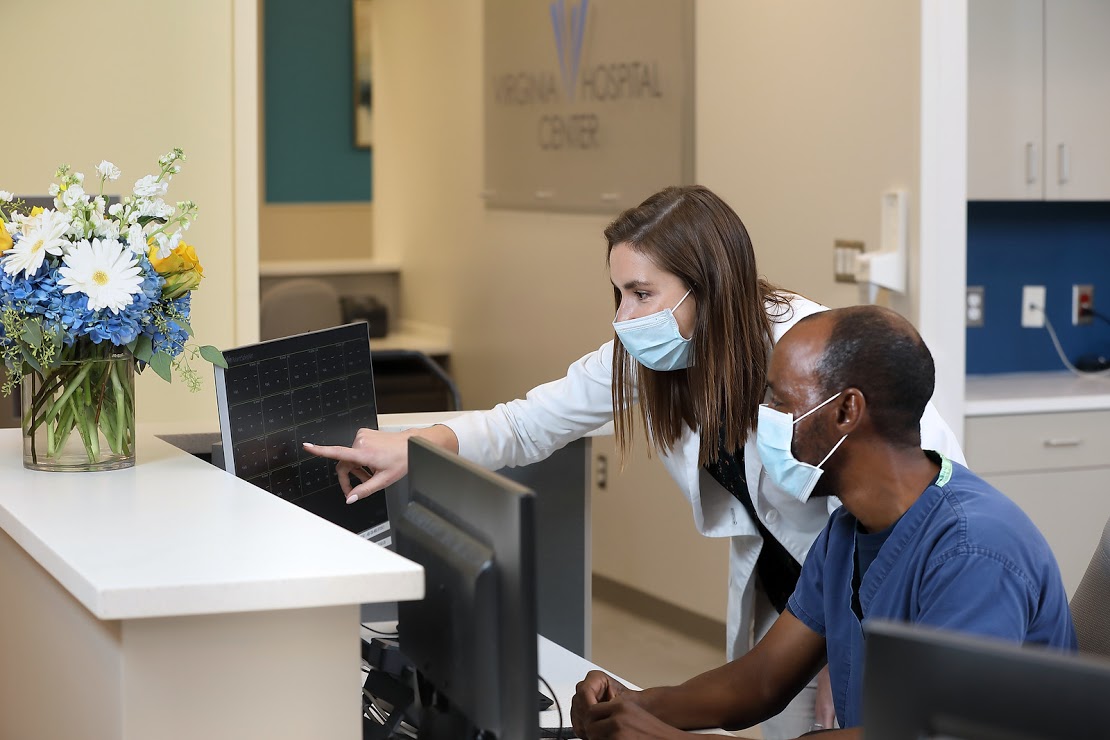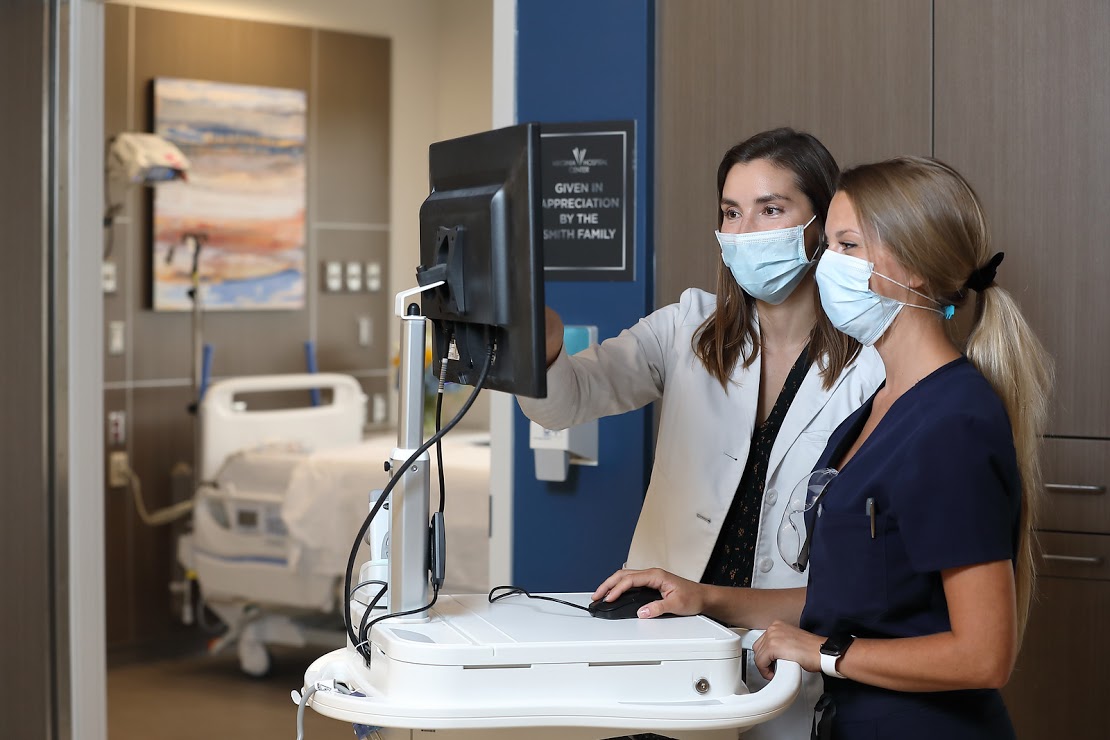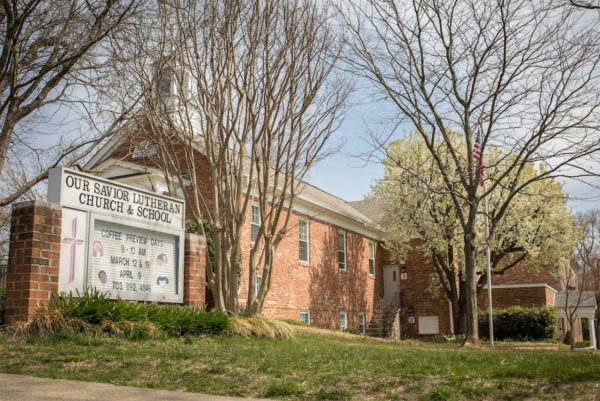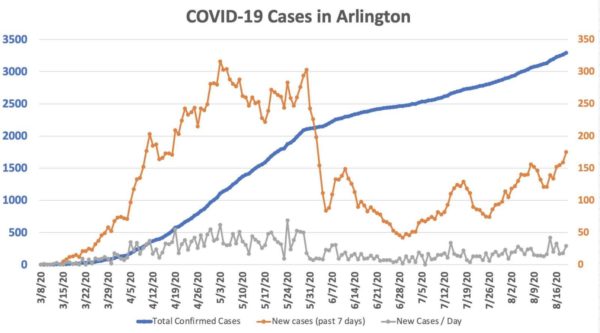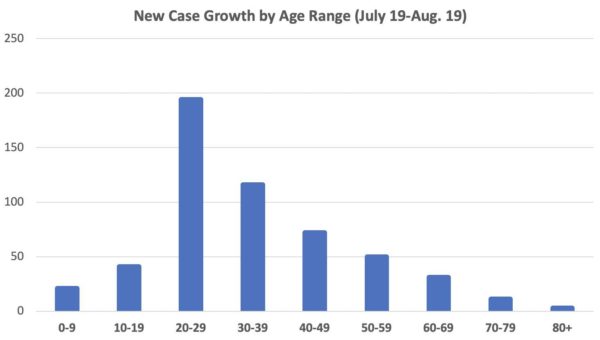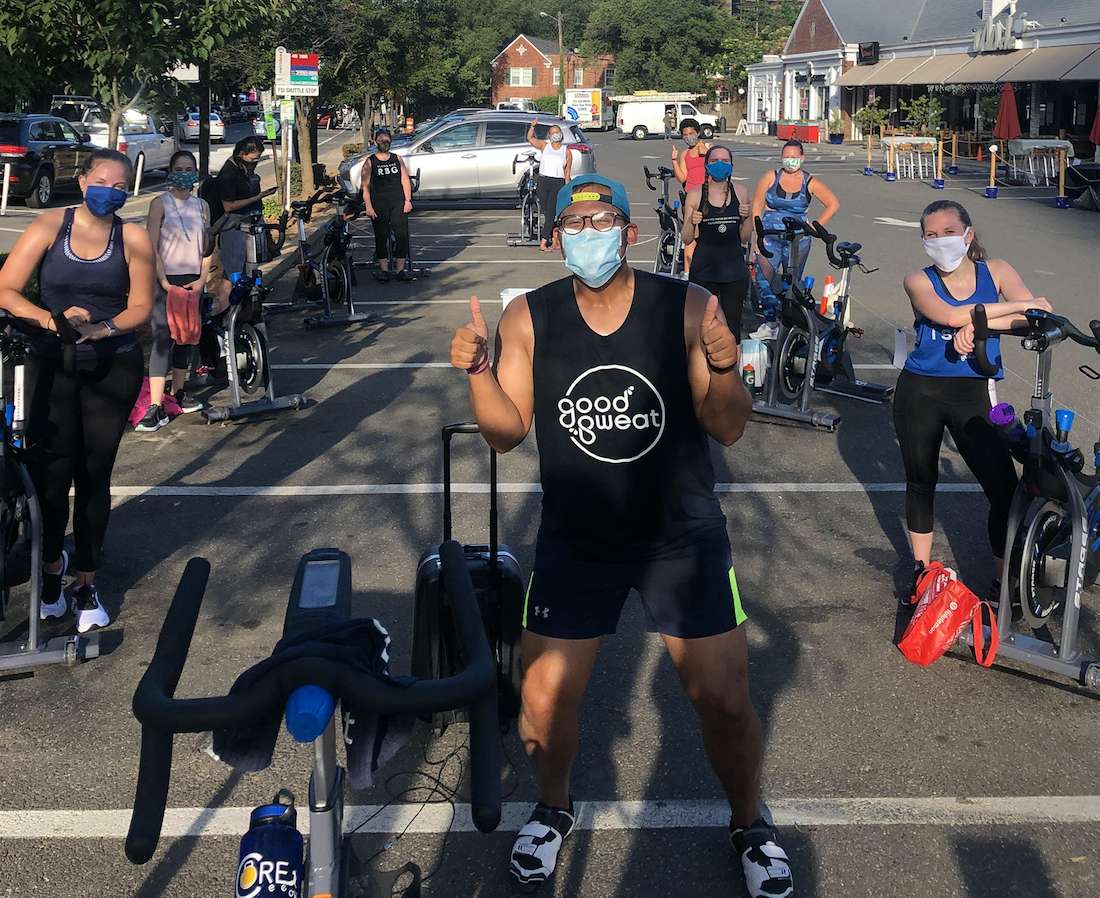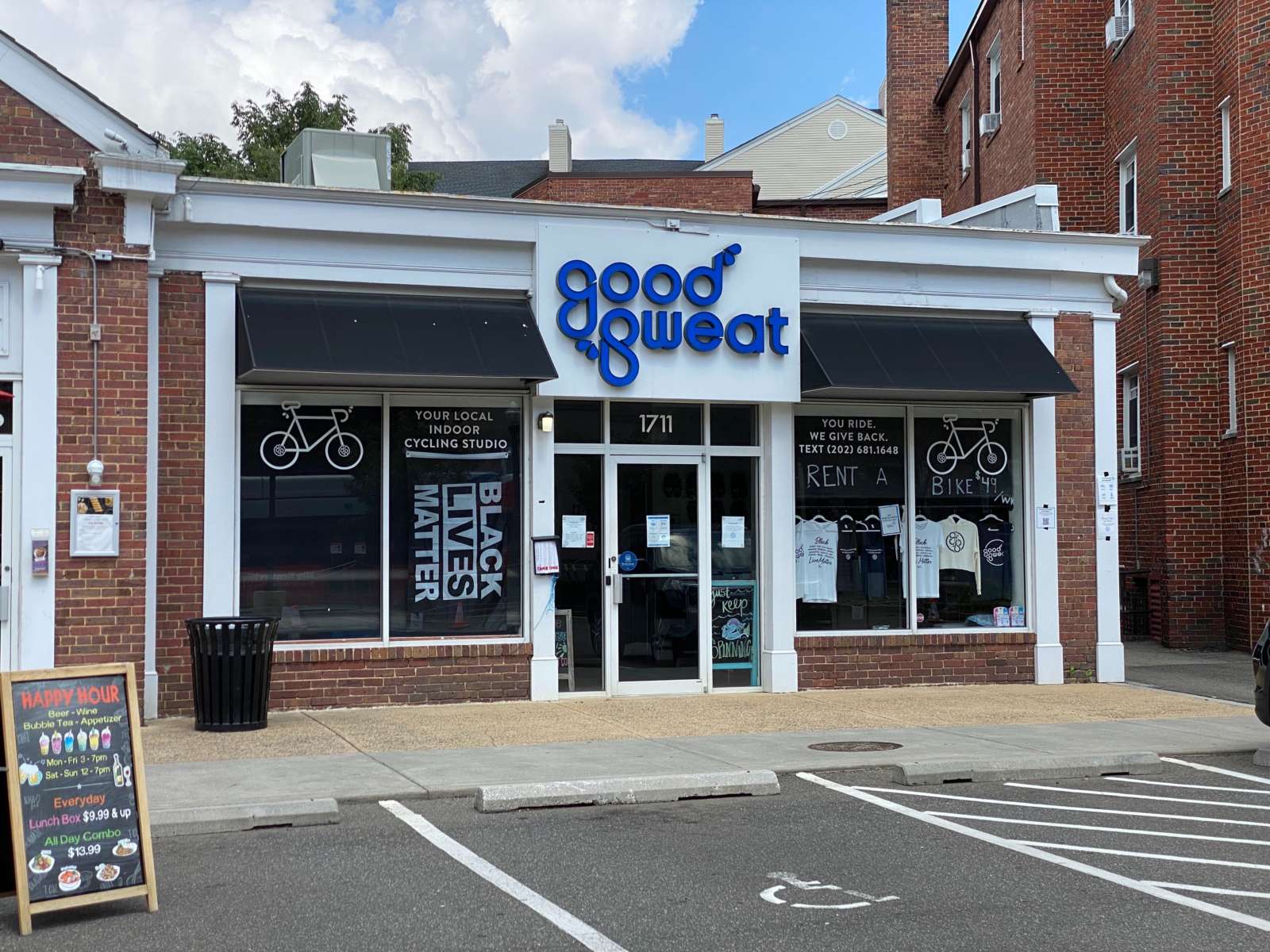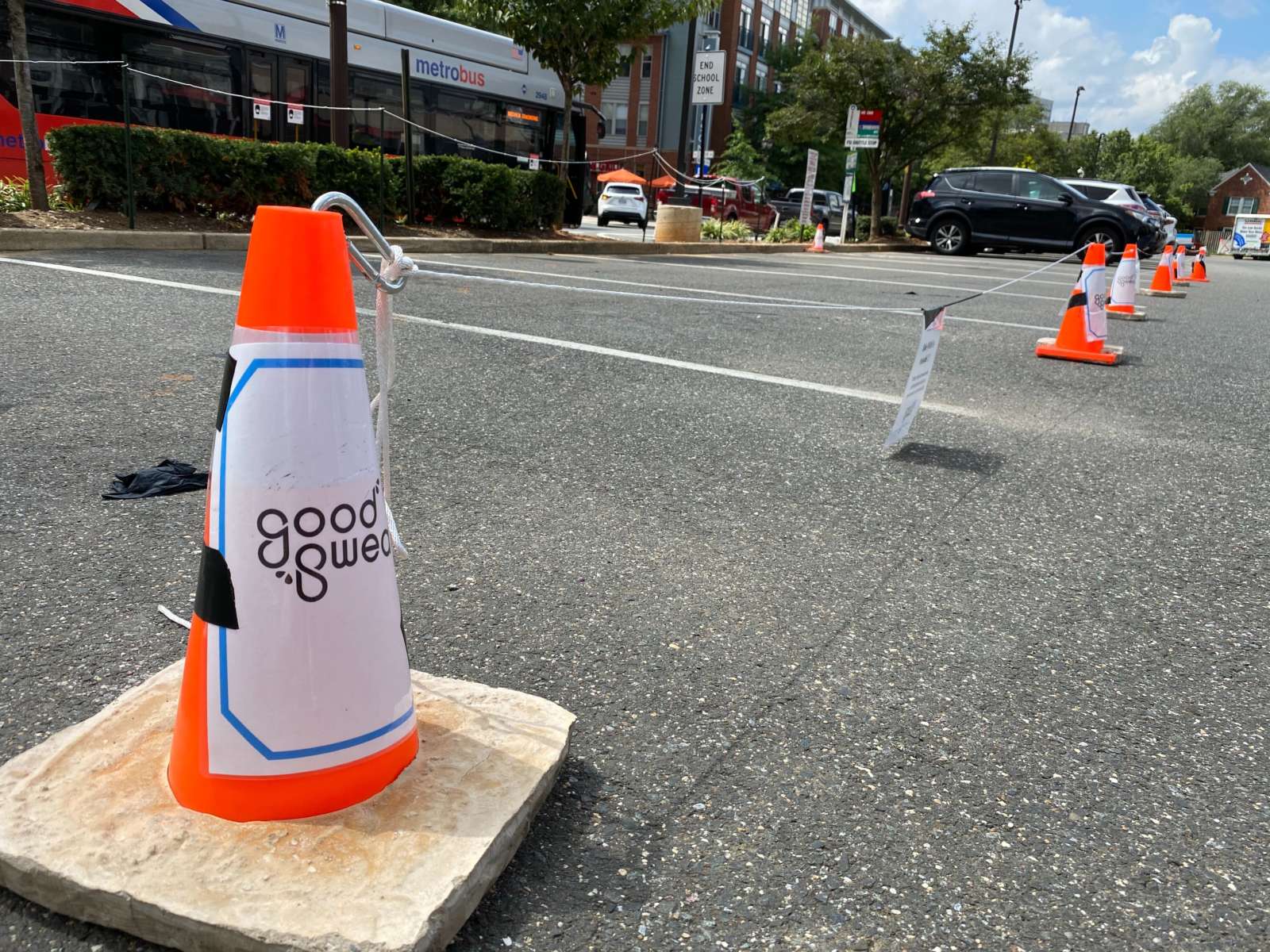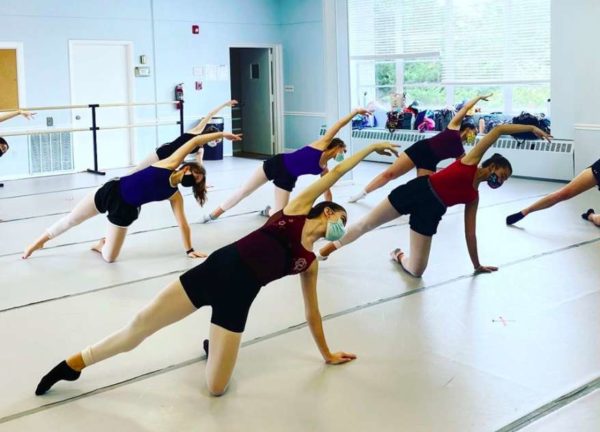Marymount University students in Arlington are going back to class today.
The start of the fall semester for Marymount comes amid a backdrop of coronavirus outbreaks disrupting the start of school at other colleges and universities. UNC Chapel Hill and Notre Dame have shifted to online classes after outbreaks there; college outbreaks have been reported in at least 19 states, according to CNN.
Marymount, which counts nursing among its major degree programs, says that it is taking appropriate health precautions to keep students and staff safe. Among them: mask and distancing requirements, and on-campus testing and contact tracing. The school is also offering a combination of in-person and remote classes, as well as hybrids of the two.
A smaller Catholic university with campuses along N. Glebe Road in Ballston and in residential North Arlington, and a student enrollment of just over 3,300, Marymount also lacks the Greek life — fraternities and sororities — blamed for outbreaks at other schools.
The school’s move-in period last week, meanwhile, was staggered “to maximize social distancing.”
Thank you to all of our Marymount students and staff for demonstrating how to be "Safe Saints" during Welcome Week and fall move-in!
We will keep working together to maintain a safe and inviting campus for all. #MaskUpMU pic.twitter.com/QhAjoYQ6JX
— Marymount University (@marymountu) August 21, 2020
More from a Marymount press release:
After a staggered move-in process throughout the week to maximize social distancing, Marymount University’s fall semester will begin on Monday with the first day of classes. Since May, the institution has been proactive in preparations for the return of on-campus operations, face-to-face classes and student residential living.
“As we have strived to create a safe and inviting campus for all, the focus on the collective health, wellness and safety of everyone in the Marymount community has been our top priority,” said Dr. Irma Becerra, President of Marymount University. “Now, we must all work together to mitigate the risk of COVID-19 – our collective health and safety is a shared responsibility.”
Marymount’s plan for fall reopening, “Saints Reunite,” was officially approved by the State Council of Higher Education for Virginia (SCHEV) in July, and follows guidance from the Centers for Disease Control and Prevention (CDC), Forward Virginia Reopening Blueprint, Arlington County Public Health Division (ACPHD), Occupational Safety and Health Administration (OSHA) and other governing bodies and professional organizations.
Below are brief summaries of key policies and protocols designed to protect the Marymount community:
Hybrid Class Model
Marymount is offering four distinct modes of instruction – face-to-face delivery with more space between students and an increased number of class sections; hybrid delivery that combines in-person and online instruction; remote delivery that allows students to participate from a distance simultaneously; and online delivery that allows participation from a distance at their convenience.
Physical Distancing
Plans to maximize social distancing across the University include a new visitor tracking process; partitions added to open service areas; occupancy limits in areas such as study rooms, lounges and residential laundry spaces; and changes to dining services that include extended hours with reduced seating density and suspension of buffet-style functions.
Face Covering Requirement
All students, staff, faculty and visitors on Marymount’s campuses must wear face coverings at all times, except when alone in an office/dormitory room (if positioned six feet or more away from the door) or if an exception is granted.
Contact Tracing
Marymount conducts manual conduct tracing for students, staff and faculty. Steps to mitigate spread are taken – for students, a Student Health Services (SHS) case manager is in daily contact to monitor symptoms, while employees are able to seek care from either SHS or their primary care physician.
All University members must complete the #CampusClear symptom tracker every day. Smartphone users can download the app from the Apple App Store or Google Play, or it can be accessed online through this link. Everyone is also encouraged to download and use the COVIDWISE app, which helps Virginia track cases and exposure.
Testing
Marymount offers on-site testing through SHS, currently with results sent to local labs. Beginning in late September, rapid (15 minute) testing will be offered by SHS for community members who either have COVID-19 symptoms or have had a known or suspected recent exposure to a positive case.


